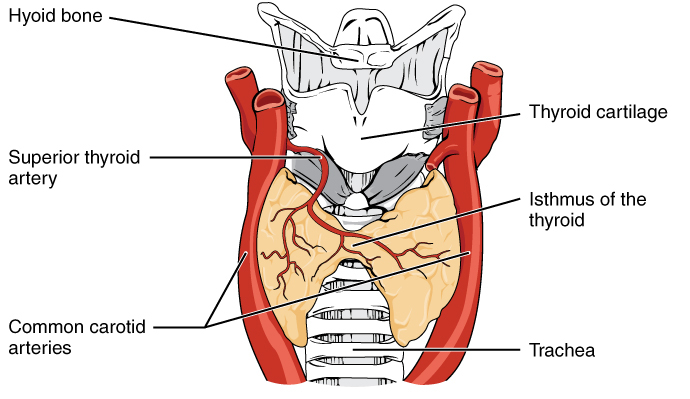Keep Your Thyroid Healthy With These Four Nutrients
The thyroid is a butterfly-shaped gland located in the front of your neck. It makes thyroid hormones which influence almost all the metabolic processes in the body.

When the thyroid produces too many or too few hormones, it leads to two serious medical conditions: hyperthyroidism (abnormally high production) and hypothyroidism (insufficient production).
You can keep your thyroid healthy by making sure that you have enough iodine, zinc, selenium and iron in your body. These four nutrients are very important for the proper functioning of your thyroid gland.
- Selenium
Selenium helps thyroid convert the T4 hormone (an inactive form hormone) into its active sibling, the T3. This means that without enough selenium the thyroid hormones would be stuck in their inactive state, leading to hypothyroidism.
Selenium also helps prevent and even reverse autoimmune thyroid, by neutralizing hydrogen peroxide (the oxidant which damages thyroid cells). Foods that contain selenium include Brazilian nuts, shellfish, fish and meat. You can also take 200mcg of selenium supplements per day.
- Zinc
Zinc also contributes to converting the T4 hormone into T3, and it also helps the hypothalamus increase the thyroid hormone levels when they are too low. Studies have proven that zinc deficiency is linked to hypothyroidism. Add beef to your diet or take 25mg of zinc supplements per day in case you suffer from zinc deficiency.
- Iron
Iron is a must in two processes of thyroid hormone production: first is converting iodide to iodine and the second is converting T4 to T3. Iron deficiency is frequent in vegan and vegetarian people, but also in those that follow a paleo diet. Iron can be found in mussels, clams, chicken liver, beef, spinach, and oysters.
How to test your Iodine, Selenium, Zinc, and Iron levels
- Skin Test
During this test, iodine tincture is applied to the skin to observe how quickly your skin absorbs it.
- Iodine Loading Test
During the iodine loading test, the patients have to take 50mg of iodine. A urine test is done to see how much iodine was absorbed and how much was expelled. The more iodine your body absorbs, the more deficient you are.
Unfortunately, these tests are not very accurate as every person absorbs nutrients at different rates. What you can do is keep the supplement and dietary iodine intake between 150-450 mcg per day and frequently monitor the thyroid’s function for any signs of hypothyroidism.
When it comes to the zinc and selenium levels, the Individual Optimal Nutrition Panel tests or even the standard blood tests can show the levels of these two nutrients in your body.
Iron deficiency can be checked by checking the ferritin levels, which accurately indicate the amount of iron in your body.
If the tests show that you are deficient in one or several of these nutrients, you should adopt a diet that consists of nutrient-rich foods and take supplements.



